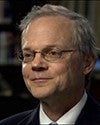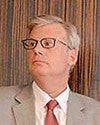
The U.S.-U.A.E. Business Council and the International Institute for Strategic Studies (IISS) are pleased to invite you to the first meeting of the U.A.E. Forum on the Gulf with a special focus at this round-table luncheon session on Iran-Gulf Arab Tensions after the Nuclear Deal. This discussion will shed light on the non-nuclear challenges posed by Iran to the Arab Gulf states.
This exclusive luncheon event will be held at the Business Council¹s offices the DLA Piper Building, Washington D.C. We hope that you can join the U.S.-U.A.E. Business Council and IISS for what promises to be a very informative event.
Wednesday, February 24, 2016
Luncheon: 12:00 PM 2:00 PM
Location
DLA Piper
Room 1 White
500 8th Street N.W.,
Washington D.C.
Remarks will be provided by:
Mark Fitzpatrick
Executive Director, IISS-Americas
Michael Elleman
Consulting Senior Fellow for Regional Security Cooperation, IISS
To find out more about IISS, U.S.-U.A.E. Business Council, and the Guest Speakers please see below.
—
International Institute for Strategic Studies (IISS)
With offices in four global regions and an international membership of two thousand policy experts, scholars, business leaders and other opinion leaders, the London-based IISS is a leading authority on global security issues.It is renowned for its annual Military Balance assessment of countries’ armed forces and for its high-powered security summits, including the Shangri-La Dialogue and Manama Dialogue.
U.S.-U.A.E. Business Council
The U.S.-U.A.E. Business Council is the premier business organization dedicated to advancing bilateral commercial relations. By leveraging its extensive networks in the U.S. and in the region, the U.S.-U.A.E. Business Council provides unparalleled access to senior decision makers in business and government with the aim of deepening bilateral trade and investment.
Mark Fitzpatrick
Executive Director,IISS-Americas
 After ten years heading the IISS Non-Proliferation and Nuclear Policy Programme, Mark Fitzpatrick moved to Washington in December 2015 to also take on the role of Executive Director of the office here. Fitzpatrick’s research focus is on preventing nuclear dangers through non-proliferation, nuclear security and arms control. He has published and lectured extensively on issues related to Iran and other countries that pose proliferation challenges and is a frequent commentator on BBC, NPR and other global news outlets. His recent work has included leading a Track II dialogue involving Iranian and Arab opinion shapers.
After ten years heading the IISS Non-Proliferation and Nuclear Policy Programme, Mark Fitzpatrick moved to Washington in December 2015 to also take on the role of Executive Director of the office here. Fitzpatrick’s research focus is on preventing nuclear dangers through non-proliferation, nuclear security and arms control. He has published and lectured extensively on issues related to Iran and other countries that pose proliferation challenges and is a frequent commentator on BBC, NPR and other global news outlets. His recent work has included leading a Track II dialogue involving Iranian and Arab opinion shapers.
Fitzpatrick joined IISS in 2005 after a distinguished 26-year career in the US Department of State, where for the previous ten years he focused on non-proliferation issues. In his last posting he served as Deputy Assistant Secretary for Non-proliferation (acting), responsible, inter alia, for policies to address the proliferation problems posed by Iran, North Korea, Libya, Iraq, South Asia and other regions of concern.
Michael Elleman
Consulting Senior Fellow for Regional Security Cooperation, IISS
 Mr. Michael Elleman is a Consulting Senior Fellow for Regional Security Cooperation at the IISS, and the principal author of the IISS Strategic Dossier Iran¹s Ballistic Missile Capabilities: A net assessment, as well as numerous articles on missile proliferation and USNATORussian cooperation on missile defense. Presently, Elleman co-directs a project on Gulf Ballistic Missile Defence Cooperation, in parallel with his research on Iran’s evolving ballistic missile doctrine. Before joining IISS, Elleman spent five years at Booz Allen Hamilton, where he supported the implementation of Cooperative Threat Reduction programs sponsored by the US Department of Defense and the Department of Energy. He also provided weapons proliferation analyses to the Advanced Systems and Concepts Office (ASCO) at the Defense Threat Reduction Agency (DTRA). Previously, he spent 18 months at the United Nations Monitoring, Verification and Inspection Commission (UNMOVIC) as a missile expert for weapons inspection missions in Iraq. Prior to joining the UN, he spent two decades as a scientist as Lockheed Martin¹s Research and Development Laboratory, where his activities focused on solid propellants, weapons elimination technologies, nuclear effects, and special materials research. From 1995 to 2001, he led a Cooperative Threat Reduction program in Russia aimed at dismantling obsolete long-range missiles. He is a graduate of physics from the University of California, Berkeley.
Mr. Michael Elleman is a Consulting Senior Fellow for Regional Security Cooperation at the IISS, and the principal author of the IISS Strategic Dossier Iran¹s Ballistic Missile Capabilities: A net assessment, as well as numerous articles on missile proliferation and USNATORussian cooperation on missile defense. Presently, Elleman co-directs a project on Gulf Ballistic Missile Defence Cooperation, in parallel with his research on Iran’s evolving ballistic missile doctrine. Before joining IISS, Elleman spent five years at Booz Allen Hamilton, where he supported the implementation of Cooperative Threat Reduction programs sponsored by the US Department of Defense and the Department of Energy. He also provided weapons proliferation analyses to the Advanced Systems and Concepts Office (ASCO) at the Defense Threat Reduction Agency (DTRA). Previously, he spent 18 months at the United Nations Monitoring, Verification and Inspection Commission (UNMOVIC) as a missile expert for weapons inspection missions in Iraq. Prior to joining the UN, he spent two decades as a scientist as Lockheed Martin¹s Research and Development Laboratory, where his activities focused on solid propellants, weapons elimination technologies, nuclear effects, and special materials research. From 1995 to 2001, he led a Cooperative Threat Reduction program in Russia aimed at dismantling obsolete long-range missiles. He is a graduate of physics from the University of California, Berkeley.
